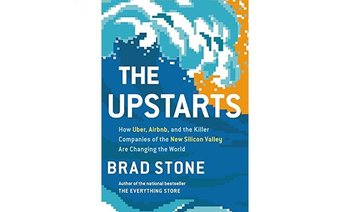“The Baghdad Eucharist” tells the heartbreaking tale of a Christian family in Iraq who must navigate through the ups and downs of life, political upheaval, religious strife and war. Sinan Antoon, a well-known novelist and translator and an award-winning poet, has written four previous novels and two collections of poetry. This novel was first published in Arabic in 2012 and was shortlisted for the International Prize for Arabic Fiction in 2013. It has now been translated by Maia Tabet, a journalist and translator.
Antoon first introduces the reader to Maha and Uncle Youssef while they are embroiled in a heated argument. Maha accuses Youssef of “living in the past” and Youssef struggles with the harsh truth as he moves forward.
Youssef is in his seventies and tends to live in the past as much of his life has passed. Maha, in her twenties, has only known war and struggle, unlike Youssef who has witnessed life before the wars and strife. He himself admits that he holds the past hostage within his house — in picture frames and mementos — so that he never forgets that there once was a time when life in Iraq was not tragic, not reduced to “car bombs, brutality and horror.”
Within the confines of Uncle Youssef’s house is the entire life of a family who has lived happily and healthily, worshipping at the Chaldean Catholic Church, supporting each other through happiness and pain. Youssef is the only remaining sibling in Iraq, much to the dismay of his brothers and sisters. Hailing from a large family, Youssef is uninterested in leaving his home, the only place that holds the memories that he cherishes so deeply. Having recently lost his older sister, Hinna, he is now inclined to continue to live in his family home, despite the fact that he only has one friend left in the world and most of his family live abroad.
Antoon’s book reveals a narrative not often visited — one of an Iraqi Christian family who are as much a part of Iraq as its palm trees. They have been devastated by Iraqi politics and war and laying their claim to Iraq has become much more difficult than it once was. They drown in words such as “infidel” and are under suspicion for being American sympathizers because of their religion. However, Youssef knows that “Iraq belongs to everyone.”
Antoon masterfully explores the opinions and perspectives of different generations in this book. The book is a moving account of a family that may now be gone but whose memories live on. Antoon’s love for Iraq is shown through his characters, their demeanor, their arguments and their insights.
His book moves through the early half of the 20th century to the invasion of Iraq in 2003 and beyond. War is ever-present, for example, Youssef first meets Maha in the basement of a supermarket as American fighter jets “pounded Baghdad so hard that the earth shook” during the Gulf War in 1991. She is an inconsolable child in her mother’s arms and Youssef walks around with his transistor radio listening to the news. Youssef manages to ease Maha’s fear but the tragedy is not over yet. War will continue throughout their lives and it is up to them to ease their own pain.
The horrors of war and dictatorship are not lost on the family. As Maha says, “all I want is to live with dignity and to be treated like a human being.”
Antoon’s story is told through photographs and memories, people and places imprinted on the fabric of time. Like the date palms that Youssef loves so much, Antoon’s characters have embedded themselves into the soil of Iraq and taken root. Their stubborn desire to live through difficult times is painful but courageous.
The story of Iraq cannot be told without tragedy and strife. It is a country that has been drowning in political turmoil for decades but its residents have lived through it and continue to do so. Even generations who have moved on, who have grown up elsewhere, remember their roots and the origin of their stories. This book tells a painful story, but it is also hopeful. Youssef’s hope for Maha, that “her wounds would heal and she would retain only what was best,” also mirrors what many Iraqis wish for their homeland.
Book Review: The powerful story of a Christian family in Iraq
Book Review: The powerful story of a Christian family in Iraq

What We Are Reading Today: ‘A Well-Ordered Thing’ by Michael D. Gordon

Dmitrii Mendeleev (1834–1907) is a name we recognize, but perhaps only as the creator of the periodic table of elements.
Generally, little else has been known about him. “A Well-Ordered Thing” is an authoritative biography of Mendeleev that draws a multifaceted portrait of his life for the first time.
As Michael Gordin reveals, Mendeleev was not only a luminary in the history of science, he was also an astonishingly wide-ranging political and cultural figure.
What We Are Reading Today: ‘We Have Always Lived in the Castle’

Author: Shirley Jackson
“We Have Always Lived in the Castle” is a gothic novel by Shirley Jackson, first published in 1962.
This haunting masterpiece stands as Jackson’s final and perhaps most accomplished work, offering a mesmerizing exploration of isolation, family loyalty, and societal persecution.
The narrative follows Mary Katherine “Merricat” Blackwood, an 18-year-old girl who lives with her older sister Constance and ailing Uncle Julian in their family estate.
The Blackwoods exist in self-imposed isolation following a tragic incident six years prior, when arsenic-laced sugar claimed the lives of most family members during dinner.
Through Merricat’s unreliable narration, Jackson crafts a Gothic tale that masterfully blends psychological horror with social commentary.
The protagonist’s voice is both childlike and unsettling, marked by obsessive rituals and protective magic that she believes keeps their diminished family safe from the hostile outside world.
The story’s genius lies in its layered exploration of themes.
On the surface, it is about two sisters living in seclusion, but beneath runs a deeper current about societal persecution, female autonomy, and the price of being different.
The arrival of Cousin Charles, who threatens their carefully maintained isolation, sets in motion events that reveal the true nature of the sisters’ bond and their relationship with the outside world.
Jackson’s prose is precise and atmospheric, creating a claustrophobic atmosphere that mirrors the sisters’ physical and psychological isolation.
The novel’s examination of how communities treat those they deem different remains painfully relevant.
The townspeople’s treatment of the Blackwood sisters serves as a sharp critique of mob mentality and social ostracism.
“We Have Always Lived in the Castle” offers a deep dive into the human psyche’s darker corners.
It is a short tale about survival, love, and the lengths people will go to protect their own version of happiness, no matter how twisted it might appear to others.
This enduring classic continues to captivate readers with its unique blend of horror, mystery, and psychological insight, cementing Jackson’s reputation as one of American literature’s most distinctive voices.
What We Are Reading Today: ‘Theoretical Ecology’ by Ryan Chisholm

Theoretical ecology explores the mechanisms that structure ecological communities using a variety of mathematical and computational tools.
“Theoretical Ecology” shows you how to translate ecological problems into mechanistic models using both mathematics and the programming language R. The book teaches key concepts and core quantitative skills while also devoting significant attention to the reasons for building mathematical ecological models.
What We Are Reading Today: The Disappearing Act

Author: Florence de Changy
Malaysia Airlines Flight 370, carrying 239 passengers, disappeared into the night, never to be seen or heard from again.
Writing for Le Monde in the days and months after the plane’s disappearance, journalist Florence de Changy closely documented the chaotic international investigation that followed, uncovering more questions than answers.
The mystery, until now, is riddled with inconsistencies, contradictions and a lack of basic communication between authorities.
De Changy draws together countless eyewitness testimonies, press releases, independent investigative reports and expert opinion, to offer an eloquent and deeply unnerving narrative of what happened to the missing aircraft.
REVIEW: ‘S.T.A.L.K.E.R. 2: Heart of Chornobyl’ tells a story of resilience and survival

LONDON: “S.T.A.L.K.E.R. 2: Heart of Chornobyl,” developed by Ukrainian studio GSC Game World, stands as both a gripping survival adventure and a reflection of real-world resistance in the face of adversity.
The game’s development faced significant challenges, with the studio partially relocating to the Czech Republic due to the ongoing conflict in Ukraine. This struggle has imbued the game with poignant cultural references and an atmosphere shaped by the harsh realities of its creators’ circumstances.
Players assume the role of Skif, a Ukrainian Marine Corps veteran drawn into the “Zone,” a dystopian take on the Chernobyl exclusion zone. In this alternate universe, the infamous nuclear disaster unleashed not only radiation but also space-time anomalies and a host of mutated threats.
The Zone is merciless, and so is the gameplay. Stalkers — explorers of this treacherous area — must navigate its dangers in pursuit of adventure, profit or ideology. The game emphasizes survival, with a steep learning curve that demands careful planning. From radiation and traps to scarce resources and malfunctioning weapons, every step is fraught with danger. Deaths are frequent and the game tracks your fatalities, adding to the sense of vulnerability.
The game shines in its atmospheric design and mechanics. The 64 sq. km open-world setting is a stunning yet haunting playground for chaos. Weapon handling is top notch, and the enemy AI is intelligent and challenging. The various human factions and mutant creatures add layers of unpredictability to the experience, while side missions pile up in classic open-world fashion.
However, the game is not without its flaws. Some elements feel restrictive, limiting creativity in problem-solving. For instance, mutant dogs may attack you relentlessly while ignoring nearby enemies. Invisible anomalies that kill instantly and radiation-related deaths can feel arbitrary, especially early on when resources like health kits and food are scarce. Additionally, the dialogue leans on cliches, which may detract from the storytelling for some players.
Despite its challenges, “S.T.A.L.K.E.R. 2: Heart of Chornobyl” offers a deeply rewarding experience for those willing to persevere. The unforgiving difficulty and grounded survival mechanics create a palpable sense of tension, while the evocative setting offers a mix of chaos and beauty. Fans of open-world games, particularly those craving a grittier and more challenging experience, will find much to appreciate.
Born out of extraordinary circumstances, it is more than just a game — it’s a testament to the resilience and creativity of its developers. Stick with it, and you will discover a truly unique title forged in the most difficult of times.

















